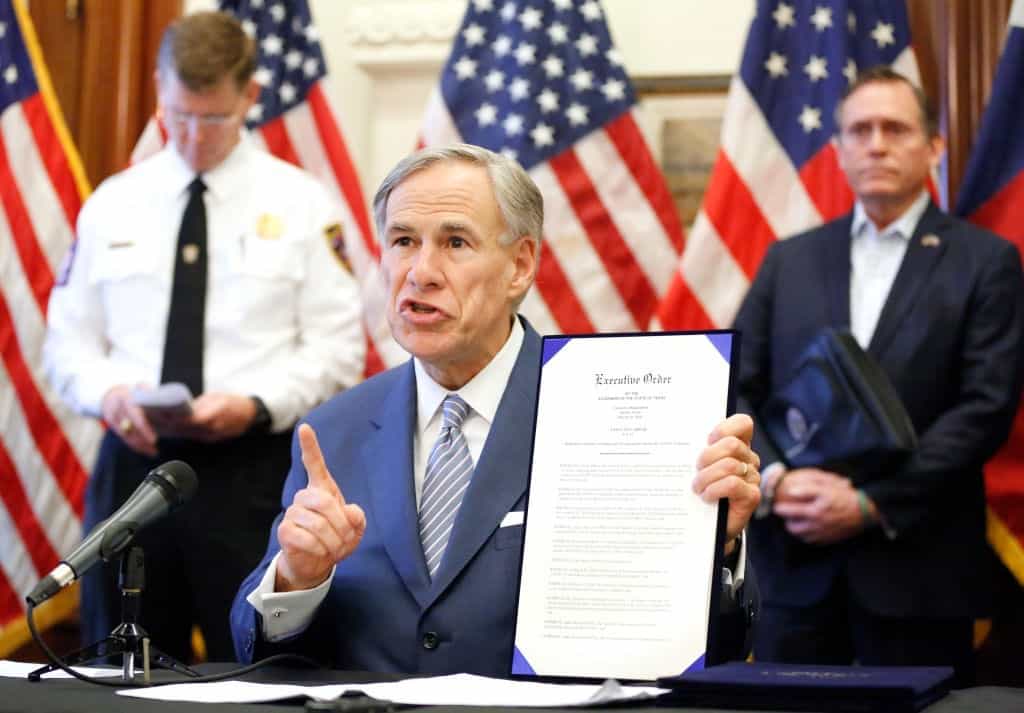In mid-November, Gov. Abbott declared that Texas was “in the ninth inning of our challenge with COVID” and balked at the idea of more shutdowns. His unfounded optimism came as hospitalizations and deaths were on the rise, a trend that has persisted through the third week of January. But his rosy projections, more recently about vaccine distribution, make more sense when viewed through a political lens. It turned out that taking bold action to stop the spread isn’t popular with his base and once they began to censure him and protest his executive orders he refocused his energy back to fighting local governments instead.
This two-fold strategy allows the governor to rally grassroots support around a familiar partisan target and provide a basis for his continued consolidation of power through legislative and executive action. Unfortunately, it has also allowed for the unfettered spread of the virus and tensions with local leaders over the vaccination plan.
Deaths from COVID-19 have reached a record average of 300 a day and ICU beds are completely full in at least 50 hospitals as demand for the vaccine far outpaces the supply. Compared to other states Texas is doing relatively well at getting shots into arms but it’s the question of whose arms that has big city mayors, county judges and advocates wanting more local oversight. Available data shows that people of color in Texas make up 60 percent of COVID-19 deaths but less than half of the vaccine recipients. Texas’ Department of State Health Services’ report indicates that White Texans have been vaccinated at a rate that is three times higher than that of Hispanic Texans and seven times greater than Black Texans.
When officials in Dallas tried to cure this ailment by prioritizing communities of color hardest hit by COVID, the state threatened to reduce their supply calling it “not acceptable.” Anecdotes like this are one reason why mayors from Houston, San Antonio, and Austin joined their municipal counterparts across the nation in petitioning the Biden administration for direct access to vaccines. The tenuous relationship between state and local leaders was also highlighted when Gov. Abbott held a round table in Houston regarding vaccine distribution but failed to alert or invite the Mayor of Houston, the Harris County Judge or health officials from their offices. Houston Mayor Sylvester Turner generously remarked that the snub must have been an oversight.
“Any round table conversation in Houston about vaccine distribution in Houston, Harris County region should include diverse representation to ensure there is equitable vaccine distribution to at-risk, vulnerable communities,” Turner said.
Harris County Judge Lina Hidalgo’s response was equally open-handed, “I don’t know the extent of the visit, I assume it’s something that didn’t need my presence, but anything beyond that would just be adding salt to a wound for no need and unnecessarily politicizing something that requires us to work closely.”
Limited supply remains the biggest barrier to widespread vaccinations but Abbott’s constant partisan posturing is preventing him from building the type of relationships with local officials that are needed to coordinate efficient and equitable implementation. The sooner Texans get vaccinated the quicker the economy can fully reopen and that will be a win for every politician regardless of their political affiliation.
Photo: Tom Fox-Pool/Getty Images
Joe Deshotel is originally from Beaumont, Texas, but a combination of live music, politics, and natural beauty brought him to Austin in 2010. He has over a decade of experience in public policy that covers federal, state, and local government and has worked on a number of successful election campaigns. He continues to consult on Democratic campaigns and serves as the Chair of Austin’s Community Development Commission which advocates for affordable housing and solutions for homelessness.





